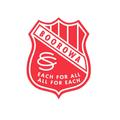Principal's Address

Semester 1 Reports
Teachers are adding the final touches to your child’s Semester 1 report. Included in each student report are details regarding their level of achievement of each of the outcomes they have been assessed against and a general comment regarding their effort and application when in class. Additionally, staff have outlined goals and strategies for future progress in each subject area (secondary) and in English and Mathematics in Primary.
Reports will be sent home with Primary students as a hard copy in Week 10. Year 11 reports will be released for viewing via the Compass app on Monday of Week 9. Year 7-10 reports will be available at the end of week 10.
If you have any questions regarding your child’s report or progress in a subject, please contact the school to arrange an appointment with the relevant teacher.
‘Pink’ Assessment Notifications in Secondary
Students in secondary complete regular summative assessment tasks. These tasks provide insight to the teachers regarding the students grasp of content, skills and a reflection of teaching methods utilised.
These assessment tasks are instantly recognisable to the students because they are all printed on pink paper. They are also prepared on the same template, all with the heading ‘Assessment Notification’. All students sign a register when they receive these tasks and as a minimum, they have 2 weeks to complete and submit the task.
The assessment task procedures are formal when students enter Year 9 as this is the beginning of the ‘Record of School Achievement’ or ROSA. This ROSA is an academic transcript that details the grades a student has earned throughout their schooling journey from Year 9 until Year 11. It is a very useful document to include in a resume when applying for a part-time or full-time job. If a student completes Year 12, they receive the Higher School Certificate.
The ROSA is awarded to all NSW students and its application and monitoring is regulated by the NSW Education Standards Authority or NESA. Therefore, all schools apply the assessment processes based on the rules provided by NESA.
If your child is in secondary, there are some tips to help your child manage assessment tasks and their timely submission.
1. Ask your child on a daily basis:
a. something they learnt at school,
b. a funny moment that occurred,
c. what went better than expected and
d. did they get any assessment tasks today?
This will help open the communication pathway regarding school and show your child that you are interested about their school life and academic success
2. If your child has a ‘pink’ assessment notification, display this in a location where both you and your child can see it. A suggestion is on the fridge or on a display board in their room/study.
This helps you and your child to stay aware of what they are required to complete.
3. Read the task notification with your child and attempt to clarify any misunderstandings.
Also read the marking criteria with them. This helps them understand where they will get their marks.
4. Support your child to map out their assessment due dates on the calendar.
This will help them take control of their situation and help them backward map their time so that they do not get overwhelmed or try and ‘pull an all nighter’ the night before a task is due.
5. Block out assessment/homework time each day and allocate time on weekends.
Like the point above, this will help them stay on top of assessment requirements. This then becomes a routine. Routines are far easier to manage than telling your child that they have to miss out on something they enjoy so they can complete their assessment tasks.
This routine will then become a habit that will be very useful in the senior years when regular study is required.
6. Ask your child to show you their Google Classroom for each of their subjects.
Each subject in Secondary has a Google Classroom where work is posted and a copy of any assessment task can be located. This is a great place to look if your child is stuck with a task.
7. Email the teacher of the subject if your child needs assistance.
Teachers will try their best to reply in a timely manner so that students can complete tasks to the best of their ability
8. Submit a draft copy.
Students can submit 1 draft copy of a task a week before it is due. The teacher will provide feedback that will help them ‘polish’ their final submission.
9. Celebrate success and scrutinise feedback.
Congratulate your child’s successes and their hard work. Celebrate their results and read the feedback carefully. The teacher will provide tips for improvement that can be applied to future tasks.
Supporting a teenager through secondary school can be a very challenging undertaking. However, with a strategic approach, you will feel better equipped to manage your child and stay on top of their assessment tasks.
Research has proven that students who have parents who are actively involved with their child’s schooling experience greater academic success.
